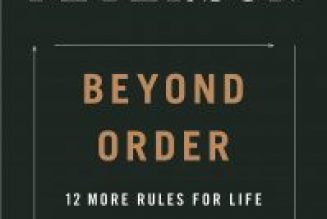
(Unsplash/Wesley Tingey)
My name is Karl, and I am an alcoholic.
It was nearly three decades ago that I first uttered those words to a roomful of strangers, having no idea of the life-changing impact that one simple sentence would make. Alcoholics Anonymous gave me the tools to rebuild my life. It also, as one of many unintended consequences, brought me back to the Catholic faith, a faith I had practically abandoned in my late teens.
As we complete a full year of lockdowns, isolation and loss, one of the less-discussed impacts of our pandemic is the effect this time has had on people struggling with addictions. Fellowships such as AA have mostly been forced out of church basements and onto platforms such as Zoom, if able to meet at all.
One of the great things about my early recovery was the sense of not fighting for sobriety in a vacuum. AA brought me in direct contact with other people, each with their own battles, who together made up a “we” that somehow was stronger than any one individual. Much like congregants at a Mass, we heard messages designed to help us follow a certain path.
But even more importantly, we found a community of like-minded souls. When after an hour we stood, held hands and recited either the Our Father or the Serenity Prayer, it represented a coda similar to “The Mass is ended, go in peace,” a phrase that could carry me for a day or even a week when I allowed it to.
Loss of that fellowship has had two tragic consequences. First, it has deprived newcomers of the chance to engage personally with survivors and to find the hope that there just might be an answer to their problem. Second, it has deprived people with some time and experience with sobriety of that personal interaction so important to obtaining another day clean, causing countless relapses, illnesses and deaths.
Online meetings have been a lifeline, but ask anyone that is part of a 12-step fellowship, and they will tell you they are counting the days until we return to the “old normal.”
But what of the impact of a year of COVID? Traditional means of dealing with stress, such as working out, gathering with friends, or going to the movies or a show have been eliminated, the victims of business shutdowns and social distancing.
Alcohol use, which has been a common stress-reducing tool since man first crushed grapes, has become a national crisis. Hospitalizations for alcohol-related liver illnesses are up 30-50% nationwide in the last year. And a recent University of Arizona study showed alarming increases in morning drinking, amounts of alcohol consumed and suicides, all arising from the same root cause – COVID-related isolation.
And what about the Catholic man or woman who might be asking themselves questions about their own substance use after a year unlike any in our lifetime? How does one go about determining if their use of alcohol or other substances is a matter for concern, and what should they do about it if it is?
While traditionally AA’s “20 Questions” is one of the best resources for assessing the impact of drinking in one’s life, the questions aren’t nearly as beneficial when reviewed in the context of prolonged isolation. Perhaps in these times, one must consider whether there has been a marked increase in the amount consumed, or the desire to consume.
It’s always a good idea to look closely at when one is picking up a drink or a drug, and from there asking oneself, Why? Is alcohol being used as a reward or perhaps a coping mechanism? And for Catholics, it’s smart to look at the impact on family, and one’s prayer/spiritual life when considering if substance abuse might be impacting daily living.
If you’ve read this far and think you or someone you know might be in need of help, there are numerous resources in the Philadelphia area to help those struggling. The Archdiocese of Philadelphia offers a number of useful referral points through Catholic Social Services, which can be reached at 1-800-622-HELP, or their website CSSphiladelphia.org/recovery-and-hope.
The Southeastern Pennsylvania Intergroup Association of Alcoholics Anonymous (SEPIA) provides a hotline that is staffed 24/7, and can be reached at 215-923-7900. SEPIA also provides a listing of thousands of AA meetings in the five-county area (both live and through Zoom), which can be found at aasepia.org.
Calix Society, a 12-step fellowship that is specifically for those of the Catholic faith, has meetings both locally and online. More information is available at CalixSociety.org. And a priest, family doctor, psychologist/counselor, or a good friend are always a great resource when these issues need to be discussed.
From all appearances, it looks as if we may be rounding the corner with the pandemic – but the after-effects will impact all of us for quite some time. Matters such as PTSD, survivor’s guilt and recovery from economic and social distress are only a few of the anticipated COVID-related issues counselors will be dealing with in the next few years.
If you or someone you know is struggling, be assured that 1) you are not alone and 2) there is help. Recovery can be challenging, but through it, we find strengths we never knew, and receive constant reminders of God’s goodness.
Join Our Telegram Group : Salvation & Prosperity








